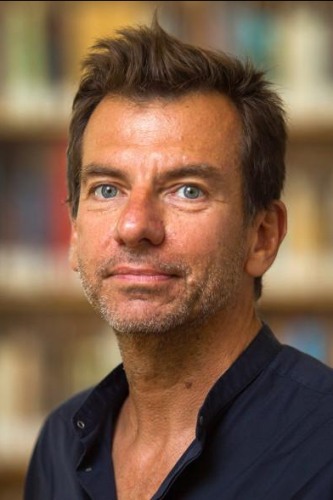
Yannis Hamilakis
Biography
Yannis Hamilakis has studied at the University of Crete (BA History and Archaeology), and the University of Sheffield (MSc and PhD). He has taught at the University of Wales Lampeter (1996-2000) and the University of Southampton in the UK (2000-2016). He has been Wiener Lab Fellow at the American School of Classical Studies, Athens (1993-1994), Mary Seeger O'Boyle Fellow at Princeton University (1999), Library Fellow at Princeton University (2000), Margo Tytus Fellow at the University of Cincinnati (2003), Getty Scholar at the Getty Research Institute, Los Angeles (2005-2006) and Member of the Institute for Advanced Study at Princeton (2012-13). In 2017-2018 he will be Faculty Fellow of the Haffenreffer Museum, and (in the second semester) a Fellow at the Remarque Institute, New York University.
His main research and teaching interests are the socio-politics of the past, the body and bodily senses, the archaeology of eating and drinking, the ontology and materiality of photography, archaeology and nationalism, archaeological ethnography, and critical pedagogy in archaeology. His main geographical research focus has been Greece and the Aegean, and although much of his fieldwork is to do with the prehistoric (Neolithic and Bronze Age) Aegean, he is equally interested in the archaeology of the contemporary. In fact, many of his projects are multi-temporal.
From 2007 to 2010 he directed the archaeological ethnography project at Kalaureia (Poros) Greece, and since 2010 he co-directs a major new field project, the Koutroulou Magoula Archaeology and Archaeological Ethnography Project. This centres around the excavation of an important Middle Neolithic tell site in central Greece but also includes ethnography, as well as a range of art projects, including a theatre-archaeology program.
Yannis is committed to an anthropologically-informed, critical archaeological engagement with past and present material culture, and to the inter-disciplinary nature of archaeological work. This position recognises the historically contingent nature of archaeology as a device of western modernity, as well as its potential to enable a critical and reflexive experiential encounter with the material world. He also believes on a politically commited archaeological and academic practice, devoted to social justice.